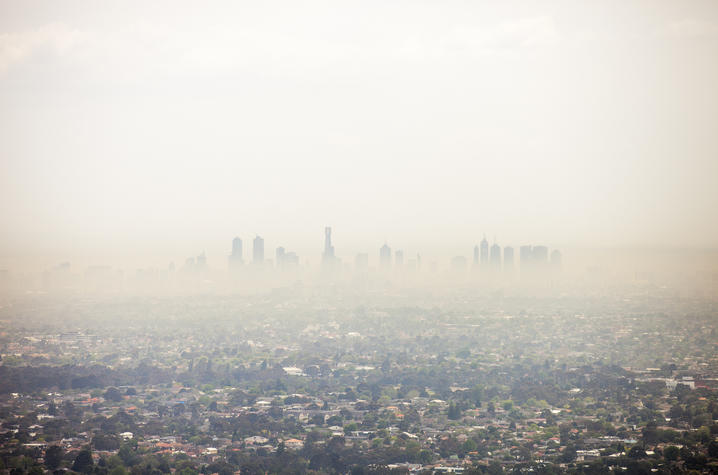Chemistry's Guzman to Study Atmospheric Reactions of Pollution

LEXINGTON, Ky. (Aug. 13, 2019) — University of Kentucky Chemistry Professor Marcelo Guzman has received a prestigious three-year grant from the National Science Foundation (NSF) for research, education and outreach efforts in the field of environmental and atmospheric chemistry.
The $461,000 project, titled "Heterogeneous Aging Mechanisms of Combustion and Biomass Burning Emissions," will focus on how gases, such as ozone, react with pollutants emitted from power plants and forest fires.
"My work with environmental chemistry focuses on the interaction of gases with organic compounds present in low water activity environments such as the atmospheric aerosol, clouds and fog," Guzman said. "Both types of emissions cause tiny particles to be suspended in air. These particles play a major role in visibility and air quality. This new project will investigate oxidation reactions occurring on the surface of particles because chemical reactions on the surface can further increase or decrease visibility and air quality."
Guzman and his students will study how these pollutants are transformed on surfaces by oxidizing atmospheric gases.
"Severe haze events occur in many places in the world facilitated by the interaction between anthropogenic emissions and atmospheric processes with a direct impact on human health,” Guzman said. “In this work, we aim to identify previously unknown harmful chemicals that should be removed from air by investigating at the molecular level the evolution of surface reactions. This knowledge will not only be a great asset for further reduction of air pollution levels but also for saving lives of people that suffer from cardiovascular diseases.”
In addition, the grant will support interdisciplinary training in atmospheric chemistry, environmental science and engineering for graduate and undergraduate students at UK, including research assistantships for four chemistry graduate students. The project will also contribute to the education of high school students in Fayette County interested in careers in science and engineering.
The project is co-funded by NSF’s Atmospheric Chemistry and Environmental Chemical Science Programs.




